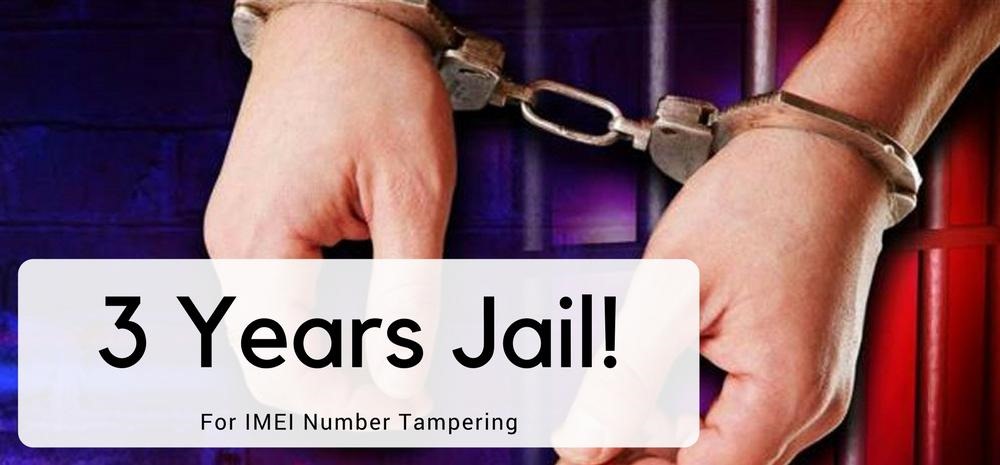IMEI Tampering Will Carry 3 Years Jail Term! Here’s How To Check Yours
IMEI Number tampering is one the rise and this new rule is a necessity!

Finally! The Government is taking IMEI tampering seriously. In what could be a landmark rule, with far-reaching implications, the Government has declared IMEI tampering a punishable offence, which carries a jail-term of 3 years. This will go a long way in cutting down the market for stolen mobiles and in turn, mobile thefts.
While most people may not be even aware that IMEI numbers can be tampered with, it is very much a scary reality. The first things thieves do after stealing a mobile, is change the IMEI. It requires very little technical expertise and just the right tools to get the job done.
But, let us start from the basics. Many people might not know what an IMEI number is. Let us address that first.
Contents [hide]
What Is An IMEI Number?
The International Mobile Equipment Identity (IMEI) number is a unique identification or serial number that all mobile phones and smartphones have.
It is a 15 digits long number which is assigned to all mobile phones, smartphones as well as feature phones, by the global industry body, GSMA.
Individual phones can be tracked on a network using the IMEI number as long as they are switched on and connected to a network. Even if the SIM card is changed, the IMEI number remains the same. This is what helps in tracking down a stolen mobile phone
How To find The IMEI Number Of Your Phone?
- Dial *#06# on your phone’s keypad to see your phone’s IMEI number on the screen.
- You can also find your mobile phone’s IMEI number on your phone’s box and the purchase invoice.
It is a good practice to note down the IMEI number in a handy place. In case your mobile phone gets stolen, it has to be submitted while lodging a police complaint.
It Is A Menacing Problem
Until recently, the IMEI number was thought to be a fool-proof way of tracking a stolen mobile phone. But, in one of the mobile phone tracking cases, the Telecom Enforcement Resource and Monitoring (TERM) cell of the DoT found around 18,000 handsets using the same IMEI number!
This not only defeats the IMEI’s purpose, but also has some serious security implications. This simply doesn’t leave any way of tracking mobile phones of antisocial or anti-national elements.
Back in 2009, the DoT had barred telecom operators from providing service to any mobile phone with a fake IMEI number. But operators face problems in identifying phones with duplicate IMEI numbers.
The New Rule
In its notification dated 25th August DoT had said “It shall be unlawful, if a person, except the manufacturer ?- intentionally removes, obliterates, changes, or alters unique Mobile Device Equipment Identification Number,” the Department of Telecom said in a notification dated August 25.
The new rule is called “Prevention Of Tampering Of The Mobile Device Equipment Identification Number, Rules, 2017”.
It specifically prevents a person from knowingly using a mobile, whose IMEI number has been unlawfully changed. It also bars individuals to possess software that has the ability to change or tamper the unique identifier.
The DoT had started consultation back in June itself to frame strict laws against tampering of IMEI numbers, which makes it difficult for any or all security agencies in tracking mobile phones.
DoT has framed these new rules with sections 7 and 25 of the Indian Telegraph Act.
Section 7 empowers DoT to make rules of conduct for providing telecom or telegraph services.
Section 25 outlines damaging of telegraph line, machines and related equipment. It has a provision of punishments of up to 3 years of imprisonment and/or a fine.
In Conclusion
It is heartening to see the Government taking strong steps in order to battle this new menace. The Department of Telecom is implementing a new system which will block all service on stolen or lost mobile phones. The new system will work on any network, even if the SIM card is changed or removed or if the IMEI number of the handset is tampered with.
Hopefully, with these new stricter rules in place, mobile theft becomes a thing of past. What do you think? Will these new rules be successful? Sound off in the comments below.
